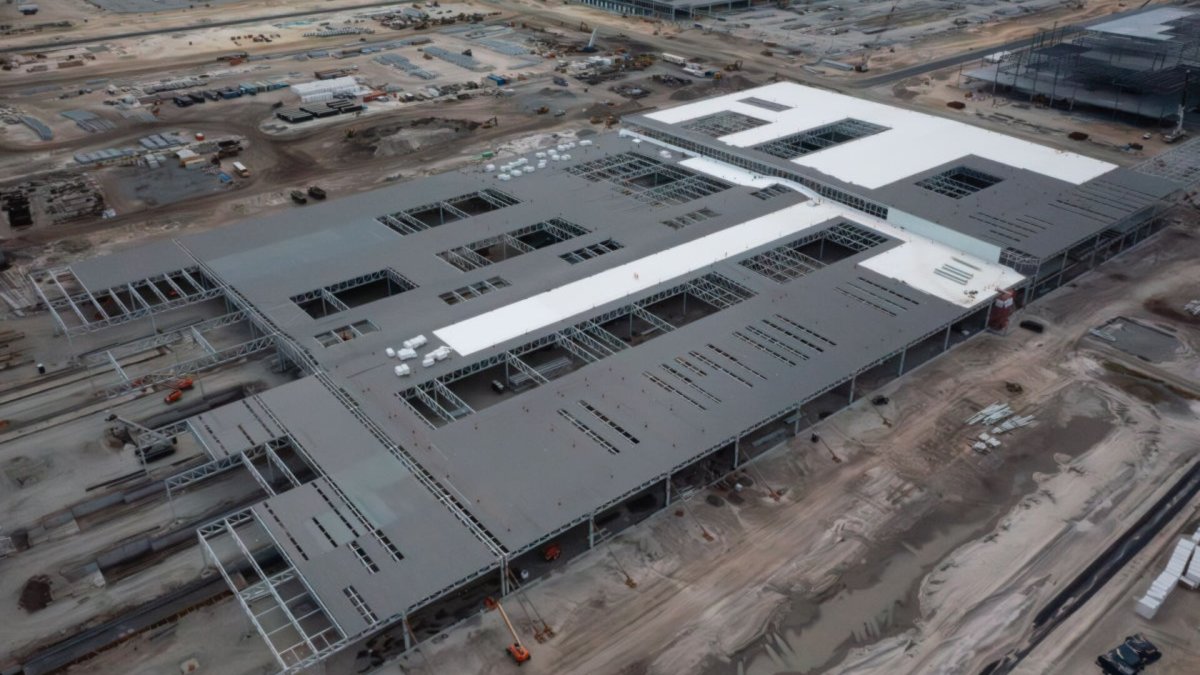South Korean electric vehicle battery manufacturer LG Energy Solution Ltd. has been on quite a run over the past couple of years.
The company was officially established in 2020 after being spun out from LG Chem. By 2022, it was a publicly listed company on the Korea Stock Exchange.
That year, it also signed a joint venture with Hyundai to build a $4.3 billion EV battery manufacturing plant in Ellabell, Georgia.
That facility was at the center of an international incident earlier this month, but it was far from the last big money deal LGES has signed recently.

Image source: Nouvelage/Bloomberg via Getty Images
LG Energy Solution is now the third biggest EV supplier in the world
Just five years after its inception, LG Energy Solution has become the third largest EV supplier in the world behind global leader CATL and BYD, both from China.
LGES has signed billion-dollar deals with everyone from General Motors to Rivian.
LG Energy Solution partners:
- General Motors: GM has a joint venture with LGES called Ultium Cells, which manufactures battery cells for GM’s EVs.
- Rivian: The U.S. EV maker signed a deal with LGES to be its battery supplier in 2024. LGES agreed to supply Rivian with 67 GWh of its new 4695-type cylindrical battery cells for five years.
- Tesla: Tesla signed a $4.3 billion supply deal with LGES in July 2025. LGES will supply Tesla with lithium iron phosphate batteries sourced from its factory in Michigan, according to reports.
- Mercedes-Benz AG: In September, LGES signed a $10.7 billion deal with Mercedes-Benz AG to build EV batteries for the company’s vehicles in Europe and the U.S.
Related: Hyundai forced into $7.6 billion pivot after US immigration raid
LG Energy Solution has numerous other partnerships to supply EV batteries in the U.S., and last week’s Department of Homeland Security immigration raid could have put its plans to enter the country on hold.
Tuesday, the company assured the world that it would not abandon the U.S.
LG Energy Solution plans to continue building its U.S. footprint
LG Energy Solution said Tuesday that it hasn’t stopped construction of its plants in the U.S. despite the immigration raid on September 4 that rounded up 475 workers at its Ellabell plant.
More than 300 workers were Korean nationals who were reportedly “all skilled workers,” according to The Korea Times, and Hyundai CEO Jose Muñoz said that this could hurt the company’s future plans in the country.
“For the construction phase of the plants, you need to get specialized people. There are a lot of skills and equipment that you cannot find in the United States,” Muñoz said from the sidelines during an automotive conference in Detroit, according to Reuters.
But on Tuesday, LGES confirmed that it is not slowing down its U.S. ambitions.
Related: Hyundai’s $7.6 billion pivot hits major snag
“All of the locations are working very hard right now to assess and to make sure that we don’t have an impact on our customers,” Bob Lee, LGES’ top executive in North America, said at an auto conference in Detroit Tuesday, the Wall Street Journal reported.
“We have to try to find a plan that works regardless of various, different scenarios, so that’s what we’re doing,” Lee said.
Lee hopes that LGES’ misfortune will result in a positive development, allowing other Korean workers with technical skills to obtain visas more easily.
“That was something many people understood, but now, after this crisis, the fact that we’re placing attention on it will be a very good thing,” Lee said.
U.S. asked if detained Korean Hyundai workers could remain in the States
The DHS insisted that the immigration operation was “about safeguarding the integrity of the economy and preventing the exploitation of workers.”
However, this week, President Donald Trump reportedly undermined the whole operation.
The deportation of 330 workers detained at the site was briefly delayed after the president encouraged them to remain in the U.S. and keep working.
“President Trump said the detained Korean nationals are all skilled workers, and that he wanted to explore whether they could stay in the U.S. to continue working and training American workers, rather than return home,” an unnamed foreign ministry official told reporters.
Related: Experts weigh in on President Trump’s SEC reporting proposal
#Energy #Solution #update #great #news #carmakers